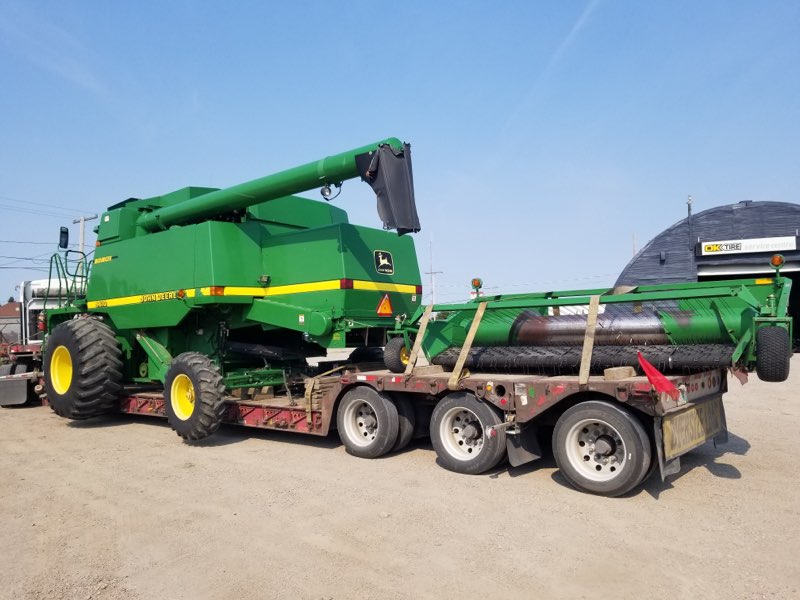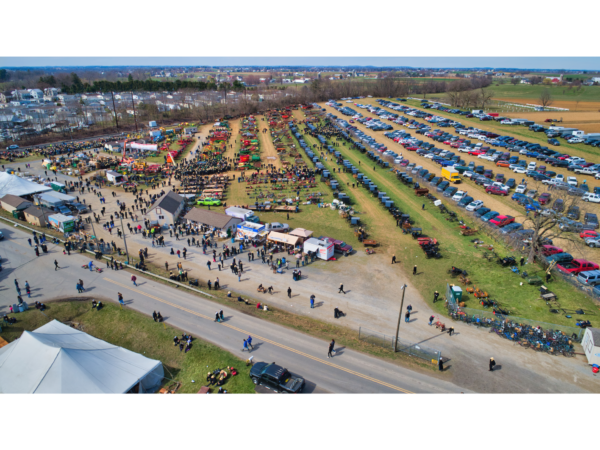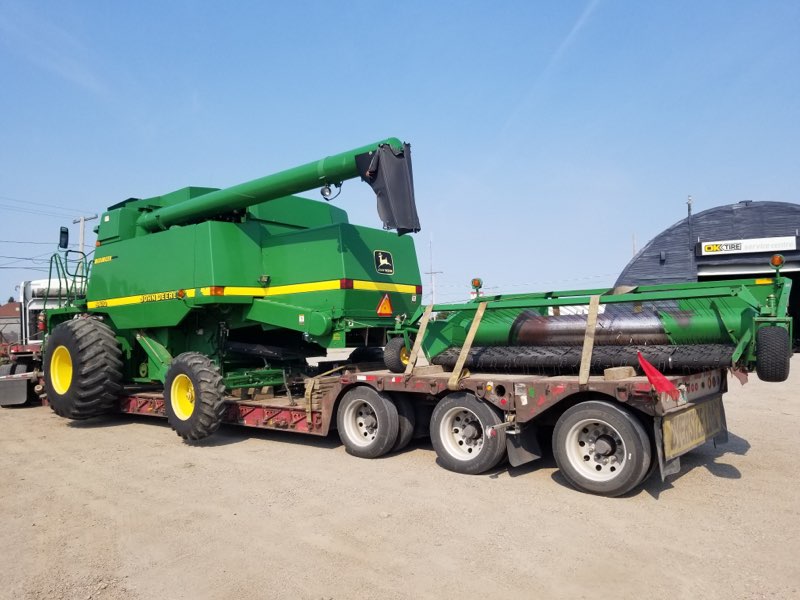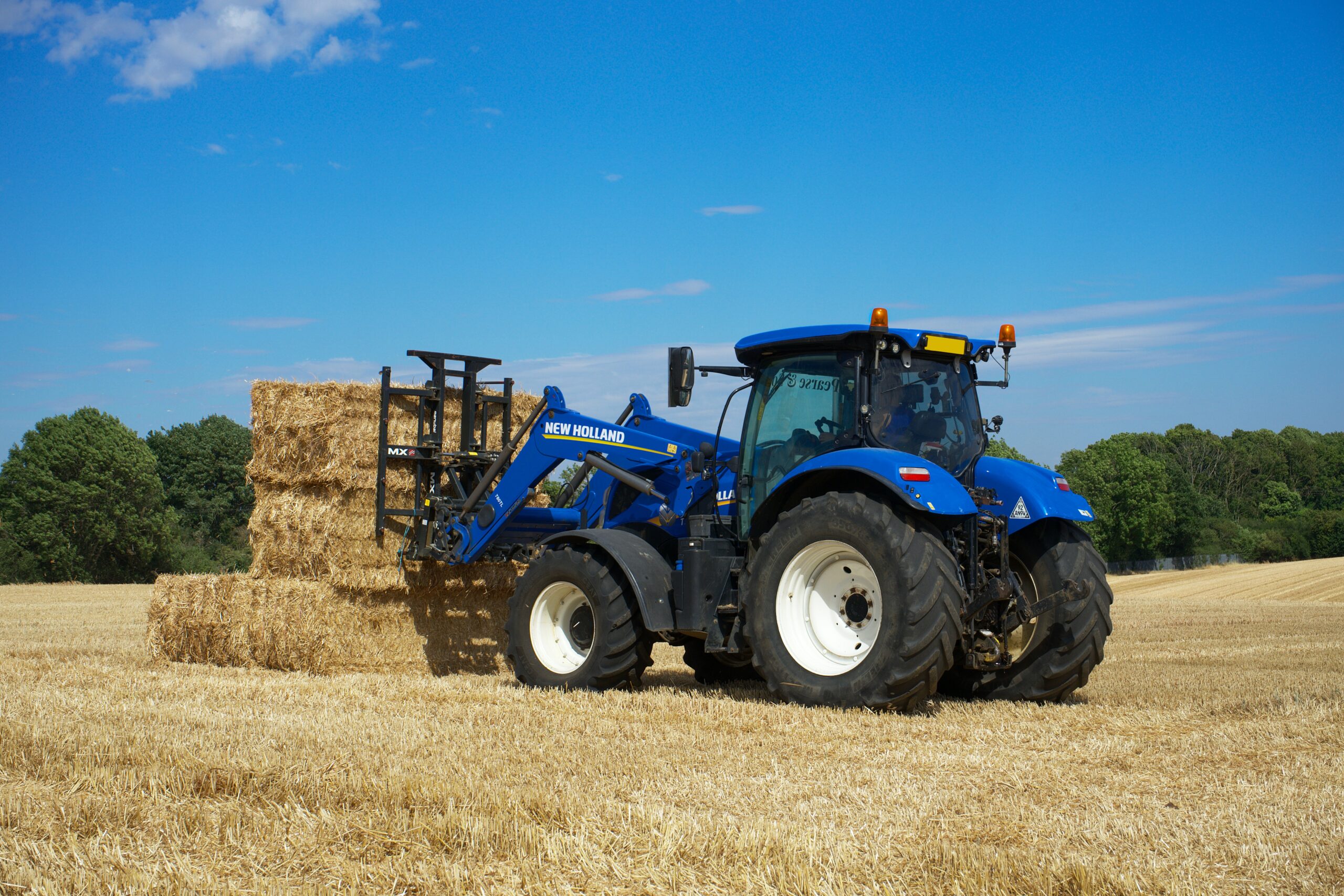How to Safely Transport Farm Equipment
Safety should always be the top priority for any shipping company when transporting agricultural equipment. Safety is important for several reasons, but mainly to protect your equipment, ensure your satisfaction with the service, and keep the driver and everyone else on the road safe. Failure to follow safety protocols can lead to severe and even life-threatening consequences.
Heavy-duty hauling is a skill that requires extensive training, and not all shipping companies have high standards. That’s why we have created this guide for you! If you follow our guidelines below, you will be well on your way to safe farm machinery transport.
The Top Pieces of Farm Equipment We See Transported
Combine Harvesters
Combine harvesters are an essential tool for farmers as they harvest many different kinds of crops. Because they are such valuable machines, they are also costly, so safety is crucial when transporting them. You can find more information on combine harvesters in our guide “How to Safely Ship a Combine Harvester.”
Tractors
Thanks to John Deere, tractors are another staple piece of farming equipment that serve many different purposes, such as planting, fertilizing, and plowing. Tractors and skid steers are used for various tasks, including heavy lifting, plowing, and digging. We recommend reading our tractor transport guide if you want more information on transporting tractors.
Tractor Attachments
Because different kinds of tractors serve different functions, you can also use various attachments to suit your needs. If you currently own a tractor and have bought extra attachments, we have a separate guide on tractor equipment shipping that you can read here.
Seeders
Seeders are usually pulled by tractors, and they’re used for evenly sowing seeds in rows in a field. Planters come in various sizes, depending on the seeds being planted and how much space you’re trying to cover.
Hay Balers
Hay balers are machines that take cut hay and form them into compact bales for more accessible storage and transport. Balers will also dry and preserve the nutritional integrity of crops. Some balers can fit just fine on a standard flatbed for short hauls. However, many balers stand around 9 feet tall, which is above the height limit for flatbed trailers. We recommend a step deck trailer for hauling hay balers, especially if it’s going to be a long haul.
Where to Find Used Farm Equipment
When looking for high-quality used farm equipment, it’s essential to know what you’re looking for. Once you know what you’re looking for, you’ll have to scope out where to buy your used equipment.
Auctions
Auctions are one of the most common places to buy used farm equipment. Many auctions will host on-site or online events, and some auctions have in-house equipment transport services. Others have more limitations based on their geographical location. This is where Trusted Dispatch’s shipping services come in — you can count on us to get your equipment to your destination quickly and safely!
Online Marketplaces
If you are looking to purchase your equipment from an online marketplace, we strongly recommend AG Dealer. Trusted Dispatch has had a working partnership with AG Dealer since 2020. Through this partnership, customers can calculate shipping costs while directly booking transportation online.
How to Load Agricultural Machinery
- Park the truck in a secure spot with the brakes on.
- Make sure the ground is level and sturdy for a truck to maneuver.
- Drive the machine onto the trailer. Depending on the equipment you’re shipping, the driver will likely load the machine onto the trailer.
- Park the machine into a proper position on the trailer and use the parking brake to ensure safety.
The loading process varies depending on the equipment you’re shipping and the trailer you’re using. For more information on trailers, you can read our guide on “Understanding Trailer Types in North America.”
Farm Equipment Transport BC
Remember that if you are transporting equipment between British Columbia and Alberta, you should familiarize yourself with the oversize load regulations in Western Canada. Because British Columbia’s climate differs from Alberta’s, additional restrictions will be in place to ensure safety. You can reference our safety tips here if you want more general information on safety.
You can count on Trusted Dispatch for your transport solutions. With our experienced drivers and focus on safety, you can rest assured that your equipment will reach its destination safely and sound. Contact us today for an instant free quote!





